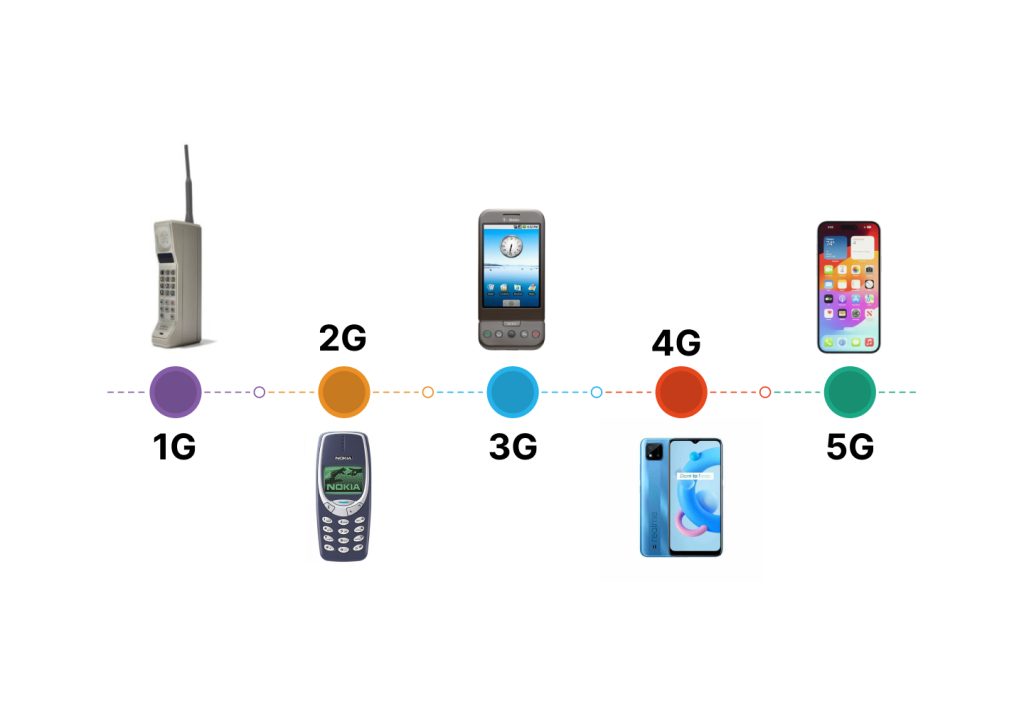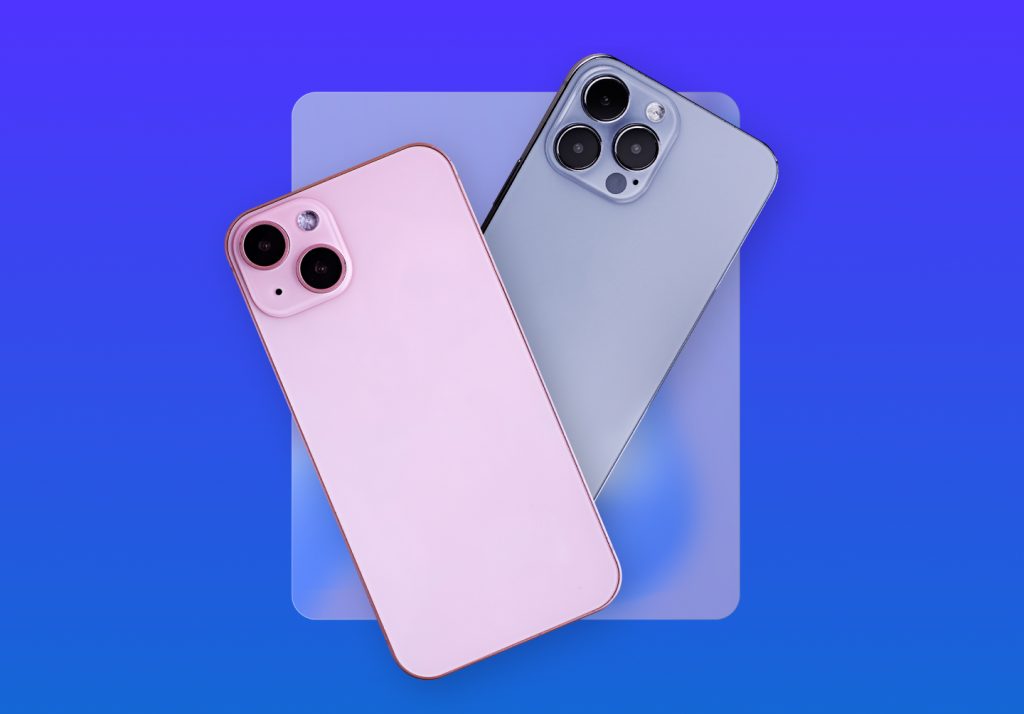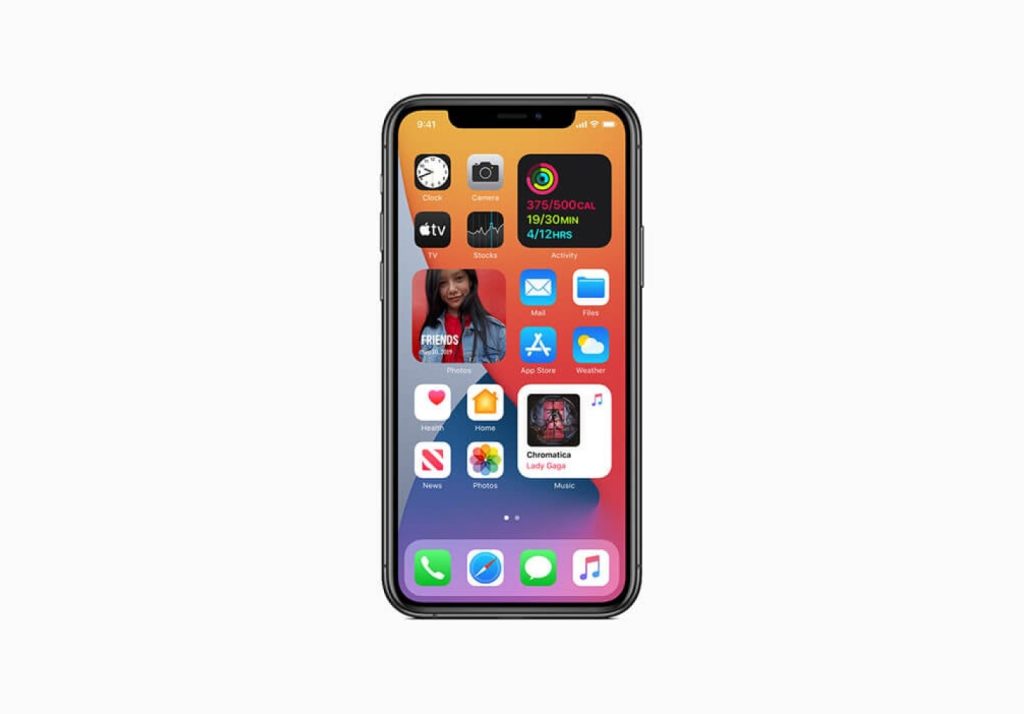
The mobile phone has become an indispensable part of your daily life, evolving from a simple communication device to a powerful tool that connects you to the world. As we look ahead to the next decade, the pace of innovation shows no signs of slowing down. With advancements in artificial intelligence, connectivity, and design, the future of mobile phones promises to bring transformative changes that will enhance your personal and professional experiences. In this article, we’ll explore some of the most exciting predictions for the next ten years, giving you a glimpse into how your mobile device will continue to evolve and improve.
Advanced integration of artificial intelligence

In the coming years, artificial intelligence (AI) will transform your mobile phone into a true digital assistant. AI will handle complex tasks more efficiently, delivering a personalized experience tailored to your personal preferences and habits. Imagine your phone anticipating your needs before you even mention them, whether it’s suggesting the fastest way to get to your destination or reminding you to complete important tasks
Experts believe AI integration will go beyond simple voice commands, predictive texts. You will have a new connection where your phone understands the details of your actions and provides appropriate support in real time. For example, AI can help you manage your schedule by analyzing your work schedule and suggesting the best times for meetings, exercise and relaxation.
Additionally, advances in natural language processing will allow you to have a more natural and easy conversation with your device. Instead of rigid commands, you’ll have a fluid conversation, making your interactions more understandable and human-like.
5G technology and above
5G technology is already making waves, so 6G could emerge in the next decade, which will also bring faster speeds and lower latency. This connectivity leap will change the way you use your mobile phone, providing almost instant access to information and services. The increased bandwidth will support a wide range of applications, from augmented reality to real-time remote surgery.
Increased connectivity will also create new applications that require large amounts of data that were previously unimaginable. You can easily watch 8K videos, immerse yourself in virtual reality experiences without late, and enjoy cloud gaming with high-quality graphics on a console.
Additionally, the proliferation of 5G and 6G networks will drive the growth of smart cities, where your mobile phone will play a key role in managing urban infrastructure. From traffic management to energy distribution, these improved networks will make cities more efficient and liveable. Your phone will act as a gateway to these smart services, improving your life.
Augmented reality (AR) and virtual reality (VR)
Augmented reality (AR) and virtual reality (VR) can become staples of your mobile experience. Over the next decade, mobile devices will offer immersive AR and VR capabilities that transform how you interact with the world around you. From gaming and shopping to education and remote work, AR and VR will open up new aspects of engagement.
Imagine using AR to imagine what furniture will look like in your home before you buy it, or having a real-time translation moment when traveling abroad. These applications will be sophisticated and accessible, offering practical solutions to everyday challenges. Apple CEO Tim Cook expressed his excitement, saying, “AR will change everything”.
But VR has taken entertainment and remote collaboration to new heights. You can attend virtual concerts, explore remote locations, and collaborate with colleagues in virtual spaces as if you were physically there. Advances in VR technology will also enable e-learning, creating immersive educational experiences that make learning more enjoyable and effective.
Flexible and foldable displays
Flexible and foldable displays are designed to change the form factor of your mobile phone. Over the next decade, these new screens will become mainstream, giving you large displays on compact portable displays. This technology will redefine multitasking and media consumption, providing a more versatile and dynamic experience.
Imagine using your phone to display a tablet-sized screen for watching movies or doing paperwork, then folding it back into a pocket-sized device on the go How luggage indicating this can be modified will provide additional controls and features, such as a rollable or extendable screen. According to Samsung, a leader in foldable technology, “foldable technology will define the future of mobile devices”.
The durability and durability of the flexible displays will be improved, addressing one of the main concerns with the original models. Advances in materials science and technology will ensure that these timbers can withstand constant wear and tear. As the technology matures, you can expect cheaper options, making foldable phones accessible to a wider audience.
Advanced battery technology
One of the most anticipated developments in mobile technology is the improvement in battery life and charging efficiency. Over the next decade, you will benefit from advances in battery technology, such as more durable batteries, offering longer life, faster charging and greater security These advances will greatly improve your mobile experience, therefore you don’t have to worry about always rebooting your device freely You can use it.
Solid batteries use solid electrolytes rather than water, and provide greater energy efficiency, reducing the risk of overheating or leakage This means your phone can last for days on a single charge, if you use it even greater.
Also, wireless charging and new energy harvesting technologies are providing more convenient ways to power your device. Imagine a solar-powered or energy-powered phone ringing on the go. These improvements will reduce your reliance on traditional charging methods and increase your sustainable energy use.
Enhanced safety features
As cell phones become more central to your daily life, security becomes paramount. The next decade will bring advanced security measures to protect your personal data and ensure your privacy. Biometric authentication methods, such as facial recognition and fingerprint sensors, will be more sophisticated and secure, making it harder for unauthorized users to access your device
In addition to biometrics, advances in encryption technology will protect your data from cyber threats. Quantum encryption, which uses the principles of quantum mechanics, will provide unprecedented levels of security. As technology continues to improve, you will benefit from more robust protection against hacking and data breaches. As cybersecurity expert Bruce Schnier says, “Security is a process, not a product.”
In addition, the integration of blockchain and other decentralized technologies will improve transaction security and data storage. Your mobile phone will act as a secure wallet for digital currencies and a reliable way to communicate securely. This upgrade will give you more control over your digital identity and financial transactions.
Environmentally friendly and sustainable products
The future of mobile phones will also be marked by a shift towards eco-friendly and sustainable materials. Manufacturers are specializing more in decreasing digital waste and selling sustainable practices. Over the subsequent decade, you will see mobile phones made from recycled substances, designed for longevity and contributing to circular economy.
The recycling and utilization of biodegradable products plays an important role in the environmental impact of cellular machinery. Companies like Fairphone are already leading the way, and this trend is predicted to take off. “Sustainability is not an option but it is a necessity,” says Eva Gouvens, CEO of Fairphone.
Besides the complexity, Daiva phones are designed for easy maintenance and upgrades. Modular devices allow you to swap or build specific components, such as batteries or new cameras, without having to buy a new system. This will reduce electronic waste and increase the lifespan of your smartphone.
Seamless integration with IoT
As the Internet of Things (IoT) continues to expand, your mobile phone will become the central hub for managing and interacting with various connected devices. In the next decade, this integration will become more seamless, enhancing your ability to control smart home systems, wearable devices, and even connected vehicles from a single interface.
Imagine using your phone to monitor and control everything in your home, from lighting and security to appliances and climate control. This level of integration will provide you with unprecedented convenience and efficiency. According to Gartner, “By 2025, there will be more than 75 billion IoT devices connected worldwide.”
The integration of IoT with mobile technology will also enhance your health and fitness tracking. Wearable devices and smart sensors will collect data on your physical activities, sleep patterns, and vital signs, providing you with personalized health insights and recommendations. Your phone will serve as the hub for this ecosystem, helping you maintain a healthier lifestyle.
Holographic displays and communication
Holographic displays and communication are no longer just the stuff of science fiction. In the next decade, your mobile phone will incorporate holographic technology, enabling 3D viewing experiences and holographic communication. This will revolutionize how you interact with the media and communicate with others.
Imagine watching holographic videos or participating in holographic calls where the person appears in three dimensions, making virtual interactions more lifelike and immersive. This technology will enhance entertainment, education, and remote collaboration. As Mark Zuckerberg, CEO of Meta, has stated, “The next platform will be even more immersive – an embodied internet where you’re in the experience, not just looking at it.”
The development of holographic displays will also open up new possibilities for augmented reality applications, blending digital content with the real world in more sophisticated ways. This will enhance everything from gaming and shopping to professional training and design.
Enhanced camera technology
The next decade will bring significant advancements in mobile camera technology, making professional-grade photography and videography accessible to everyone. Your phone’s camera will offer higher resolutions, better low-light performance, and advanced computational photography techniques that deliver stunning images and videos.
Imagine capturing ultra-high-definition photos and videos with vibrant colors and incredible detail, even in challenging lighting conditions. Computational photography will leverage AI to enhance image quality, remove unwanted elements, and create artistic effects. As Marc Levoy, a pioneer in computational photography, says, “The future of photography is computational.”
Moreover, multi-lens setups and improved optical zoom capabilities will allow you to capture a wider range of scenes with greater precision. You’ll also benefit from advanced video stabilization and editing features, making it easier to create professional-quality content on the go. These advancements will transform how you capture and share your experiences.
Modular designs
Modular phone designs will offer you greater flexibility and customization options in the next decade. This approach allows you to upgrade or replace specific components, such as cameras, batteries, or processors, without needing to purchase an entirely new device. Modular designs will extend the lifespan of your phone and reduce electronic waste.
Imagine being able to swap out an old battery for a new one or upgrade your camera to the latest model with just a few clicks. This level of customization will enable you to keep your phone up-to-date with the latest technology without the cost and hassle of buying a new device. According to Dave Hakkens, creator of Phonebloks, “Modular phones can help us create more sustainable and long-lasting products.”
Furthermore, modular designs will promote innovation by allowing third-party manufacturers to create compatible components and accessories. This ecosystem of interchangeable parts will give you more choices and the ability to tailor your phone to your specific needs and preferences.
Universal connectivity
The future of mobile phones will be characterized by universal connectivity, ensuring you have seamless access to services regardless of your location. Phones will support a wide range of networks and devices, providing uninterrupted connectivity whether you’re in a dense urban area or a remote rural location.
Imagine your phone automatically switching between different network types, such as Wi-Fi, cellular, and satellite, to ensure you always have the best possible connection. This universal connectivity will enhance your ability to stay connected, access information, and use services no matter where you are. Elon Musk’s Starlink project aims to provide global internet coverage, bringing us closer to this vision.
Moreover, advancements in network technologies will enable seamless handovers between different networks and devices, ensuring a smooth and uninterrupted user experience. This will be particularly beneficial for applications that require continuous connectivity, such as autonomous vehicles and remote monitoring systems.
Quantum computing integration
While still in its early stages, quantum computing has the potential to revolutionize mobile technology in the next decade. Quantum computing offers unprecedented processing power, enabling complex computations and applications that are beyond the capabilities of classical computers. Your mobile phone could leverage quantum computing for advanced tasks such as cryptography, AI, and simulations.
Imagine a phone that can solve complex problems in seconds, providing you with more accurate predictions, faster data processing, and enhanced security. Quantum computing will also accelerate advancements in AI, allowing for more sophisticated algorithms and applications. As Dr. John Preskill, a leading physicist, notes, “Quantum computing has the potential to solve problems that are fundamentally intractable for classical computers.”
The integration of quantum computing into mobile devices will be gradual, but its impact will be profound. You’ll benefit from faster and more efficient devices that can handle a wider range of tasks, from scientific research to real-time data analysis. This will open up new possibilities for innovation and productivity.
Personalized user interfaces
The future of mobile phones will be marked by highly personalized user interfaces that adapt to your individual preferences and habits. AI-driven interfaces will learn from your behavior and provide a more intuitive and tailored user experience. This will make your interactions with your phone more efficient and enjoyable.
Imagine a phone that organizes your apps and notifications based on your usage patterns, prioritizing the information and functions that are most important to you. The interface will evolve over time, becoming more responsive to your needs and preferences. As Satya Nadella, CEO of Microsoft, has stated, “The future is about making technology more personal and intuitive.”
Moreover, personalized interfaces will enhance accessibility by adapting to different user needs and preferences. Whether you have visual impairments, motor challenges, or other specific requirements, your phone will provide a customized experience that caters to your unique needs. This will make technology more inclusive and empowering for everyone.
The next decade promises to bring transformative changes to mobile phones, making them smarter, more powerful, and more personalized. As these predictions unfold, your mobile device will become an even more integral part of your life, enhancing your connectivity, productivity, and overall experience. Embrace the future of mobile technology and look forward to the incredible possibilities that lie ahead.
Conclusion
As we anticipate the future of mobile phones, it’s clear that the next decade will bring remarkable advancements that will redefine your interaction with technology. From AI-driven personal assistants and immersive AR experiences to eco-friendly materials and modular designs, the innovations on the horizon will make your mobile device more powerful, versatile, and indispensable than ever before. Embracing these changes will not only enhance your daily life but also open up new possibilities for connectivity, creativity, and convenience. Stay tuned to the evolving landscape of mobile technology and prepare to be amazed by the incredible innovations that lie ahead.




